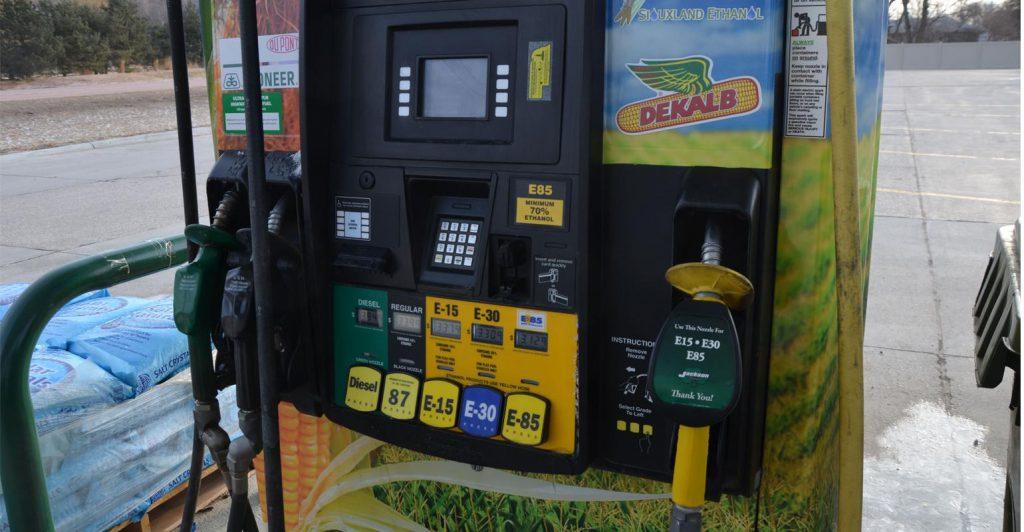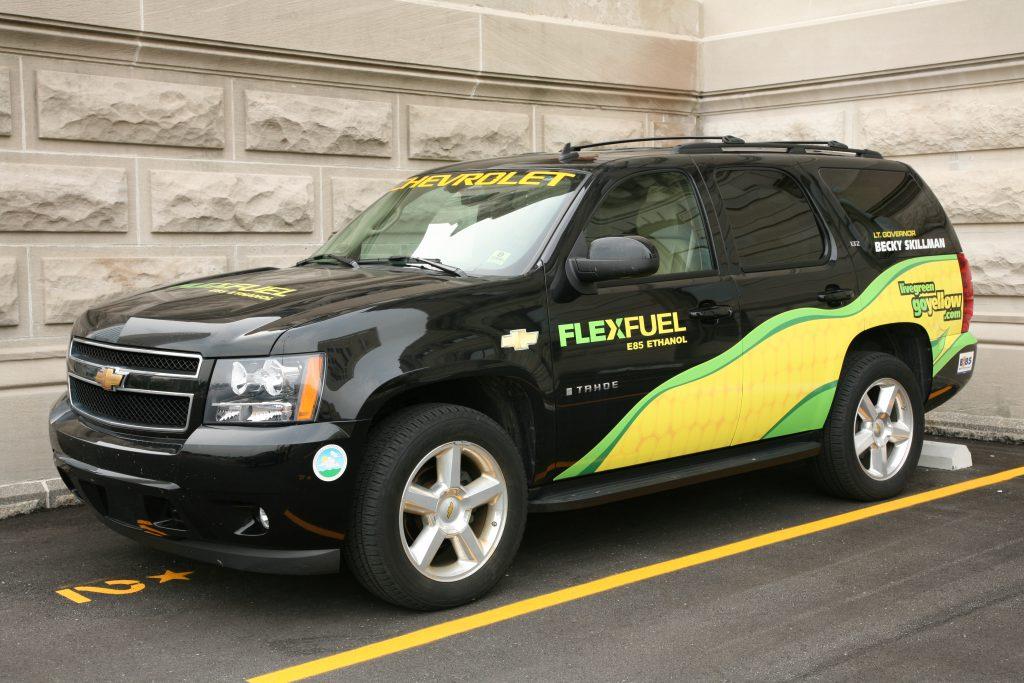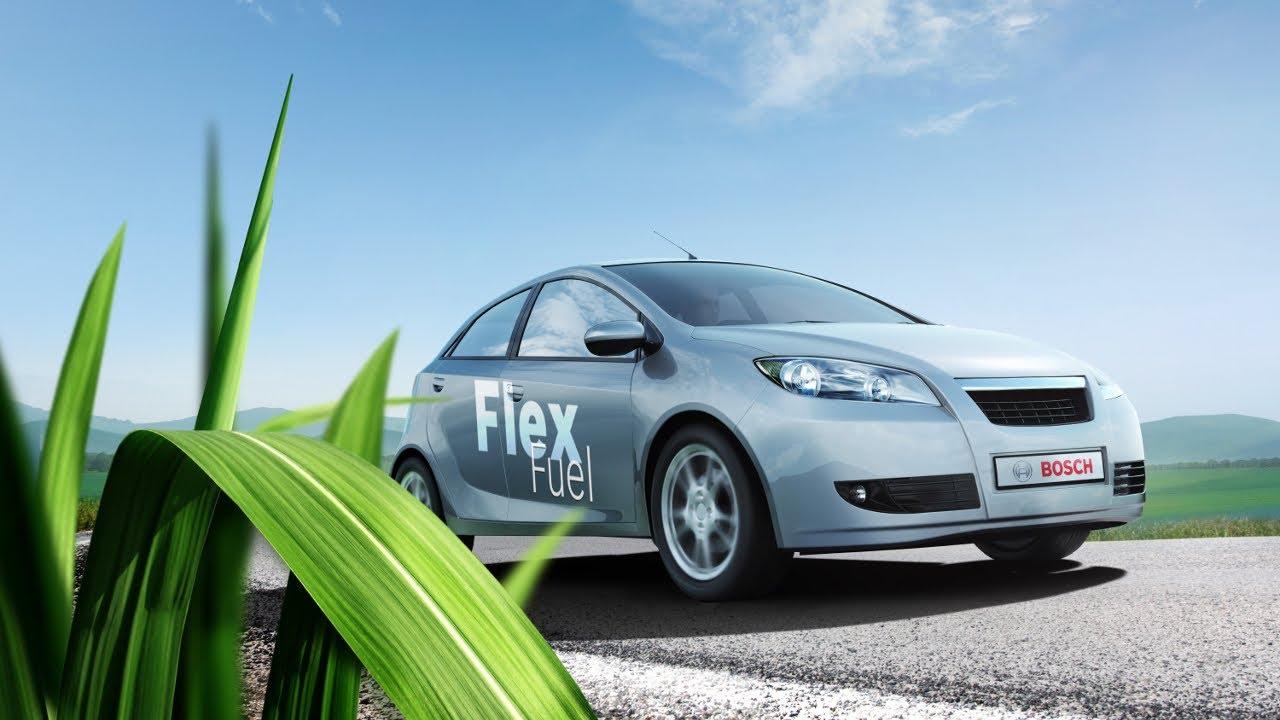Flex fuel is an energy source like gasoline used in automobiles. However, not every car is accommodating to this kind of fuel except for the ones that are designed or modified for it.
It is a mixture of gasoline and ethanol but the percentage of the ingredients has to be within a limit for use in a motor vehicle. Also, if you are thinking of going for it, know the flex fuel vehicles disadvantages and benefits before spending the money.
Contents
What Does Flex Fuel Mean?
The flex fuel is any mixture of a gasoline-ethanol blend but the flexible-fuel vehicles (FFVs) in the United States have engines optimized for E85.
It contains 51 to 83 percent of ethanol. It is possible to design an engine that will run on pure ethanol but it is not a viable option.
The engine of an FFV can run on two fuel types simultaneously and both are stored in the same tank.
The modern cars have a fuel composition sensor that adjusts the spark and fuel injection timing to detect the percentage of the ingredients in the blend. For this reason, it can burn any proportion of gasoline-ethanol mix in the combustion chamber.
The FFVs are not similar to the bi-fuel vehicles. The latter stores two types of fuel in separate tanks and the engine uses one fuel at a time.

Flex Fuel Pros And Cons
Flex fuel is cheaper than regular fuel, encouraging many drivers to use it instead of pure gasoline. However, it has its own positive and negative sides that every consumer should be aware of:
Flex Fuel Benefits
Here are the advantages of using ethanol-mixed fuel instead of pure gasoline:
Cheaper Oil Alternative. Oil is a finite resource so it is necessary to find an alternative or a way to reduce its usage. The flex fuel is a gasoline alternative that is ready for mass commercial use. Mixing up gasoline with ethanol definitely expands the world’s oil supply.
Steady Supply of Raw Materials. Ethanol is made from either sugarcane or corn – both crops are cheap and mass-produced. The corn production in the USA is higher than any other crop.
Ethanol production from sugarcane is even six-time more cost efficient than using corn but not in the USA as it has to be imported from other countries. Except for the possibility of increased costs of corn for food production, the supply of the raw materials for flex fuel is steady.
Natural Anti-freeze. Ethanol is a natural antifreeze, so it prevents the gas lines from freezing during the chilly winter. Although, it won’t bring any extra benefit in countries with a hot climate.
Less Carbon Footprint. Ethanol burns cleaner than gasoline, emitting much lower greenhouse gasses and carcinogen benzene than petroleum oil. It is water-soluble, non-toxic, and biodegradable.
Cost-efficient. Each gallon of flex fuel costs less than per gallon of gasoline. Also, the owners of flex-fuel vehicles in the USA receive a tax credit that could be big enough to eliminate the whole tax responsibility of owning a vehicle.
SEE MORE
Flex Fuel Problems
Despite having obvious reasons to choose a gasoline-alternative, flex fuel is not free of flaws. Here are the points to believe that everything is not rainbow and glitter.
Not Quite Eco-Friendly. Ethanol yields fewer greenhouse gasses but it produces more smoke-causing chemicals than petroleum oil. Many ethanol plants also use coal instead of natural gas as their primary energy source, which is not good for the environment.
May Cause Corrosion. Being a type of alcohol, ethanol breaks down faster than gasoline and attracts water. As it causes water absorption into the fuel, it may lead to the forming of rust in different engine parts. Plus, the rust particles can clog the fuel filter.
Damaging the Engine. If you are driving in hot weather or high altitude, the use of ethanol-mixed fuel may cause a vapor lock in the carburetor by raising the vapor pressure. For this reason, the engine will not get adequate fuel supply for kicking off. Plus, the alcoholic liquid is not good for the seals, leading to premature breakdown.

>> Are you interested in a used car from Japan? Buy now <<
Possible Increase in Food Prices. The two chief raw materials for ethanol production are corn and sugarcane – both of which are food crops. Using them for the mass production of flex fuel may increase their prices as human and animal food products. Plus, a big-scale cultivation will take a huge amount of land that can otherwise be used for different purposes.
Less Fuel-economy. Flex fuel costs cheaper than gasoline but the reduced fuel economy is nothing that you’d hope for. Every gallon of ethanol-gasoline mix produces 25% fewer miles on an average than a gallon of petroleum oil.
FAQs on Pros And Cons Of Flex Fuel
-
Is flex-fuel bad for gas mileage?
Because of ethanol’s reduced energy content, FFVs running on E85 get 15% to 27% less miles per gallon than ordinary gasoline, depending on the ethanol concentration.
-
Is flex-fuel harmful to the engine?
The simple answer is no. The Environmental Protection Agency (EPA) has evaluated and certified E85 for use in FFVs, indicating that it is safe to use in these vehicles. In fact, many experts feel that utilizing E85 in certain kinds of FFVs can actually deliver superior performance than conventional gasoline.
-
Is flex-fuel suitable for all vehicles?
In a flex-fuel vehicle, any octane rating of gasoline is permissible. An FFV’s sensors identify whether the fuel is pure gasoline or contains 85% ethanol and make the appropriate adjustments for optimal fuel injection and combustion timing. Using E85 in a vehicle that was not intended for flexible fuel can be dangerous.
-
Is Flex Fuel less expensive than gas?
While E85 is usually less expensive per gallon than gasoline, it may be more expensive per mile. Because ethanol has less energy per volume than gasoline, FFVs will typically achieve 15%-27% less miles per gallon when fuelled with E85, depending on the vehicle and driver behavior.
-
Is E85 superior to 91?
E85 has a higher octane rating than standard gasoline (often 87) or premium gasoline (91-93). This enables it to be utilized in higher-compression engines, which create more power per unit displacement than gasoline engines.
-
How can I tell whether my vehicle is flex fuel?
Looking at the gas cap is one of the simplest methods to tell if a car is flex fuel. It’s yellow and printed with the fuels that may be used on a flex fuel car. The gasoline type will also be shown on the inside of the fuel door.
The flex-fuel cars have their positives and negatives, just like any other vehicles. This list of pros and cons may help you make the right decision.



